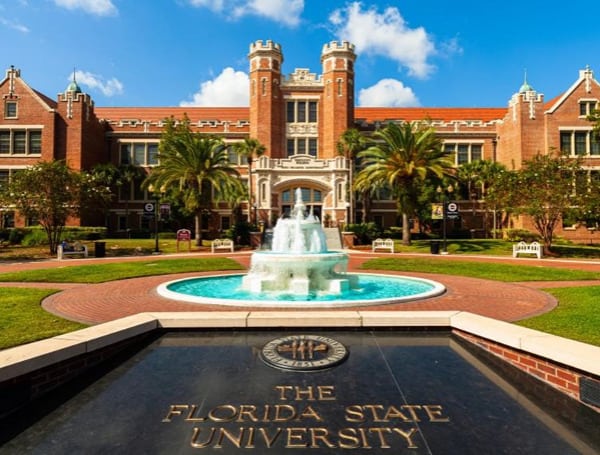Four months ago, after a court battle and an agitprop campaign from college professors who rejected the idea, the Florida Department of Education issued a survey to students and employees at the state’s college campuses.
The poll was intended to measure how students and faculty felt their First Amendment rights were being protected and promoted.
The answer is not encouraging.
The Capitolist, a conservative website based in Tallahassee, reported that roughly 18,000 surveys were returned, with 8,835 of them coming from students.
In the news: NASA Scrubs Historic Artemis I Moon Rocket Launch Due To Fuel Leaks
Most conservatives will recognize the outcome.
One of every four students replied that “they do not see regular examples of free and welcomed expression in class,” The Capitolist reported.
One out of every five students added that “they don’t feel free to express their ideas, opinions or beliefs anywhere on campus.” when it comes to “controversial” subjects – on might think of abortion, guns or trans rights – 35 percent responded that “say they don’t feel comfortable speaking up or sharing their personal views, The Capitolist noted.
“Ideological indoctrination from professors is also a significant concern,” The Capitolist continued.
Twenty-five percent of respondents indicated that “their professor uses class time to discuss their own social or political beliefs without objectively discussing opposing beliefs.”
And not surprisingly, those views are left-wing.
“Seventy-five percent of students in the survey say that the views expressed by instructors and professors are liberal,” The Capitolist noted, “while just 9 percent say the predominant views are conservative and about 12 percent say the predominant view is something else.”
On the other hand, professors overwhelmingly deny trying to indoctrinate students.
“Notably, 79 percent of college instructors and professors responding to the survey claim they never inject their personal political views into class discussions, while just 4 percent acknowledge doing so,” The Capitolist reported.
Meanwhile, “Responses from employees largely corroborated the students’ views, with 67 percent describing the predominant ideology on campus as ‘liberal.’” In contrast, just 21 percent of college employees self-identify as conservative.
In all, the survey was sent to about 368,000 students and 99,000 faculty and other employees.
As for the response to the responses, Brian Burgess, editor of The Capitolist, noted that the mainstream media in Florida “went into echo-chamber overdrive” to ignore the concerns of blatant political bias by 18,000 people on Florida campuses.
They did so by harping on the low response rate.
According to the study itself, 2.4 percent of students who were issued the survey responded.
The highest response rates were recorded at Florida Polytechnic University in Lakeland and New College in Sarasota. Each posted a 12.1 percent response rate.
Florida A&M, a Historically Black College or University, had the lowest rate, at 0.6 percent.
Some high-profile political news websites in the state, which also happen to lean left, picked up on that outcome and used words like “abysmal” or “minuscule” to characterize the response rate.
“Yet these are the same media outlets that regularly report polling data predicting the outcomes of elections involving millions of voters based on sample sizes of fewer than 1,000 responses, and never question the ‘response rate’ that the pollster encountered,” Burgess noted.
“In this case, Florida’s State University System received eighteen times as many responses as a typical poll, and the media can’t even be bothered to report the findings,” Burgess added.
In the news: Florida Gas Prices Increase For The First Time In 10 Weeks
One exception: the Tampa Bay Times. Which, Burgess noted, spun the story in a pro-liberal fashion that differed from the others.
The Times noted that roughly 61 percent of respondents “agreed that their campuses provided an environment for free expression of ideas, opinions, and beliefs.” Never mind the other 39 percent.
As Burgess concluded, “18,073 people took the time to complete the survey and voice their concerns. The number of surveys that weren’t returned does not in any way invalidate any of the data that was collected.”
Visit Tampafp.com for Politics, Tampa Area Local News, Sports, and National Headlines. Support journalism by clicking here to our GiveSendGo or sign up for our free newsletter by clicking here.
Android Users, Click Here To Download The Free Press App And Never Miss A Story. Follow Us On Facebook Here Or Twitter Here.
Copyright 2022 The Free Press, LLC, tampafp.com. All rights reserved. This material may not be published, broadcast, rewritten, or redistributed.

